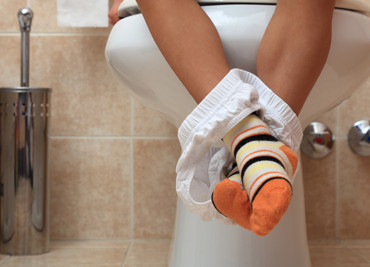 Posted September 19, 2014 | kids
Posted September 19, 2014 | kids
By Sydmarie Boyle, ND
Now that we have discussed what a healthy bowel movement should look like and all the different ways that it may go wrong, it is time to talk about different ways of testing. Assessing the bowels to determine the actual cause is important to guide treatment recommendations and follow the success of treatment. This list is far from all-inclusive but is a good place to start.
Testing:
There are multiple ways poop can be tested and several things for which to screen. One of the most common is a stool culture that will look for bacterial or yeast infections. In addition to these preliminary tests, it is routine to look for ova and parasites, otherwise known as O&Px3. Parasites are notorious for being sneaky and finding hiding places in the gut. This is why there is the x3 on the test, because typically 3 samples are collected for evaluation, increasing the chance of the parasite being found. It is important to remember that in addition to being able to hide, they have life cycles and active shedding phases; if testing is done during a dormant phase, the test will come back negative.
Many additional tests are available, and while not always part of routine testing in the allopathic field, they provide a lot of information. The function of the pancreas is important to intestinal health and how your bowels look on the other end. The pancreas produces enzymes that help break down the different types of food we eat: protein, fat, carbohydrates. We are able to test for these and overall function to see if the pancreas needs some additional support. For example, with the yellow, stinky floating stools, that could be due to a lack of lipase- a digestive enzyme for fat produced by the pancreas.
Additionally, we can assess for the overall function of the immune system in the gut. The gut is basically the outside world, on the inside of us. It gets exposed to things from the outside as we put them in our mouth. It is very important for us to have a good immune system in our gut to be able to fight off the bacteria and yeast that we eat. The hydrochloric acid (HCl) in the stomach is where most of the bugs are killed, and hydrochloric acid levels are something else that can be measured as it is important for the initial digestion of our food. If bugs survive our HCl, the intestinal lining has an immune system called immunoglobulin A (IgA) that fights for us. Having it too high means the body is working hard to fight something off, but too low may mean that the body is worn out and cannot mount the appropriate immune response when needed.
There is also a test called occult blood that looks for hidden blood in the stool. When present, this blood is dark and blends into the poop instead of fresh bright red blood easily seen. We are also able to evaluate how much inflammation is present in the small and large intestine and the current level of acidity. Additionally there is a test to determine the ability of the intestines to absorb nutrients through a test using D-xylose. This test looks for micronutrients in our red blood cells, which also gives a good indication of the body’s ability to absorb and utilize the nutrients needed.
There are many factors that play into digestion, which leads to copious potential evaluations. The liver and gallbladder are the source of bile, and as mentioned in part I and II, helps to digest fats. Also, how the body reacts to food will play a role in how a bowel movement looks. There are several different ways that the body can respond to food with a couple of options for testing including assessing for true food allergies, sensitivities and autoimmune reactions. Of course, there is also the infamous colonoscopy that allows for actual visualization of the intestines and takes samples if needed to help assess for irritable bowel syndrome, masses, polyps, bleeds, celiac, etc. Even if a bowel movement looks completely normal, it is recommended that everyone get a screening colonoscopy (or comparable exam) at the age of 50.
It is now clear how important it is to have a healthy, daily bowel movement. If there is any concern of bowel dysfunction, a primary care physician can help guide choices of which tests are most appropriate and order them. So, remember to appreciate a bowel movement and take the time to turn around and take a quick peek to make sure everything is going smoothly. Have you had your bowel movement today?
This Post Has 0 Comments